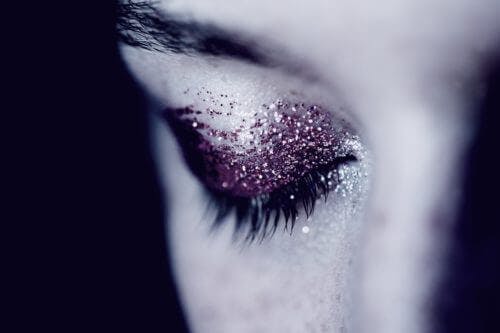- Home
- Resources
- Influencers
- Article
A Former Self: Mariah Carey, Demi Lovato, And Scott Stapp Discuss Bipolar Disorder

If you have BPD or know someone with the diagnosis, you’ll know that it can be hard to accept–much less talk about. Luckily, some celebrities have been open about their struggles, providing reassurance and validation to those who can relate.
Mariah Carey
Mariah Carey kept her bipolar disorder under wraps for several years. The singer feared public scrutiny and rejection. She was diagnosed in 2001 with bipolar II disorder — “I didn’t want to believe it,” the star told People Magazine — yet never publicly revealed it until April 2018.
Bipolar II disorder is different than Bipolar I disorder due to the greater intensity of the mania. Hypomania symptoms include an increase in energy, self-confidence or racing thoughts often followed by depressive episodes.
This illness is not something that disappears or fades with time. It is something I must continue to overcome.
Her diagnosis could explain her frenzy behavior during her performances and guest appearances. She unexpectedly appeared on MTV’s TRL in 2001 with an ice cream cart and alluring outfit. Her visit and behavior left host Carson Daly stunned on live air. She shortly was hospitalized for “extreme exhaustion.”
However, the platinum-selling singer chose to seek treatment for her bipolar disorder upon career mayhem and an engagement break-up around October 2018. “I didn’t want to carry around the stigma of a lifelong disease that would define me and potentially end my career. … I was so terrified of losing everything. I convinced myself the only way to deal with this was to not deal with this,” Carey told People. She struggled to find the balance but is now attending therapy and taking the proper medication to keep her disorder in balance.
Despite having numerous No. 1 singles, the public’s comments can overwhelm any celebrity, especially when dealing with personal matters. “Until recently I lived in denial and isolation and in constant fear someone would expose me. It was too heavy a burden to carry and I simply couldn’t do that anymore… I sought and received treatment, I put positive people around me, and I got back to doing what I love — writing songs and making music. As hard as this is, I also knew it was time to finally share my story,” Carey explains.
Scott Stapp
Scott Stapp, Creed frontman, exhibited erratic behavior before formally being diagnosed with bipolar disorder. In a video posted on Facebook, Stapp rambles on about a financial situation with his record company appearing temperamental. Following that incident, came a 911 call from Stapp’s wife, who tried to alert the police of Stapp’s threats to then President Barack Obama.
Stapp sought treatment after that. “I had a psychotic break that was brought on by alcohol and drug abuse,” he says. “I was hallucinating. I drove around the United States for a month, following an angel that I saw on the hood of my car.”
Stapp checked into a dual diagnostic facility where he was diagnosed with bipolar disorder. “It was hard to process,” he told People. “There’s a stigma associated with it. But Jaclyn [wife] kept telling me, ‘Embrace it. We love you.’ It became a big sigh of relief, because finally, we had an answer. Stapp began taking medication and rehabilitating in a 12-step program.
Demi Lovato
Demi Lovato, singer and actress, has publicly faced several obstacles, including a drug overdose. Lovato has also struggled with bullying, addiction, eating disorders and bipolar disorder.
When Lovato first checked into a treatment facility in January 2011, the diagnosis of her bipolar disorder was a shock. “I had heard people joking about bipolar,” she told Refinery29, “as if it’s that one minute you’re sad, one minute you’re happy. I was worried about the diagnosis at first; I didn’t want anyone to think badly of me.”
Despite the unease she felt at first, Lovato was relieved to be able to understand what it was that she experienced since the age of 10.
Lovato altered her diet, workout regime, treatment plan and often resorts to holistic remedies to help keep her life in balance. “It’s all connected,” she says to Refinery29. “I definitely think that the issues I’ve had have been connected with bipolar.”
In January 2018, she told Good Morning America, “I just know how important it is to use my platform to help others and to share my story in hopes that it inspires people to either get into recovery or better themselves.” Although modifying her lifestyle and engaging in mental health advocacy, Lovato continues to battle addiction and recently relapsed.
Lovato released a single in June 2018, titled “Sober,” perhaps explaining her recent relapse. The intro of video shows a glimpse on what could be the party side of Demi. She sings “I want to be a role model but I’m only human. I’m sorry that I’m here again. I promise I’ll get help.”
Lovato recognizes that she faces a long road to recovery. “I have always been transparent about my journey with addiction. This illness is not something that disappears or fades with time. It is something I must continue to overcome,” she posted on Instagram.
Lesson learned
Stapp, Lovato, and Carey all show that acceptance is a key to feeling better and living well despite BPD. If you’re ever having trouble accepting yourself, there are always people who will accept you in Supportiv’s peer support chats.

